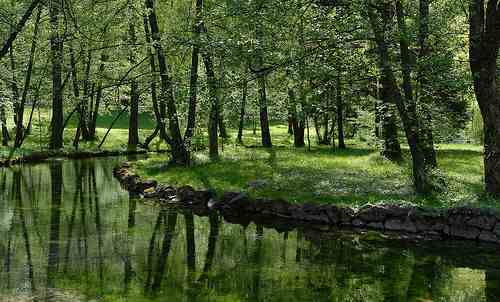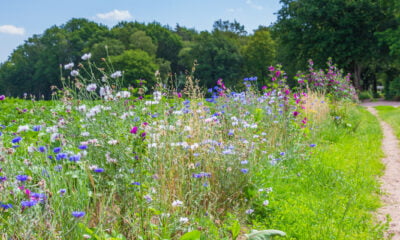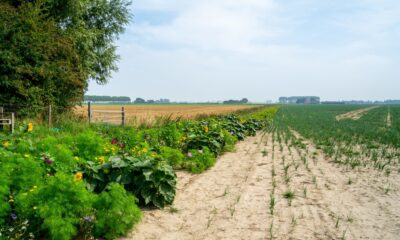

Environment
Biodiversity: What is it and why does it matter?
Today – 22 May 2015 – is International Day of Biological Diversity, intended to raise our understanding and awareness of biodiversity issues. Guy Petheram takes a closer look at a concept many of us don’t fully understand and examines why it matters.
Biodiversity is defined in the Oxford dictionary as “the variety of plant and animal life in the world or in a particular habitat, a high level of which is usually considered to be important and desirable.” Put simply, it is a measure of the variety of life on earth, and estimates of the number of plant, animal and microbial species range from between 2 and over 30 million.
The decline of many species, and the extinction of some, has reached critical levels according to the World Wildlife Fund and others. It is virtually impossible either to calculate the number of species on the planet or to estimate accurately the rate at which they are declining. However many believe that species loss is not only a reality but also a serious issue.
The State of Nature Report in 2013 found that 60% of wildlife species in the UK had declined over the last 50 years, 31% strongly, and that 1 in 10 species were in danger of extinction, with climate change acknowledged as having an increasing impact.
In 2010 Natural England undertook an English wildlife audit. It concluded that of the estimated 55,000 native species, nearly 1000 were endangered and that almost 200 had become extinct, mainly in the last two centuries. On publication of the audit, Dr Helen Phillips, Chief Executive of Natural England, explained, “We all lose when biodiversity declines. Every species has a role and, like rivets in an aeroplane, the overall structure of our environment is weakened each time a single species is lost.”
Biodiversity is important because it is the foundation of balanced biological systems which arise from the dynamic interactions between plant and animals, and their environment. These ‘ecosystems’ provide a range of essential services to human society, the value of which is hard to underestimate.
Historically, ecosystem services have largely been taken for granted but there is an increasing trend towards putting a value on these natural resources. The UK National Ecosystem Assessment in 2014 concluded that “the natural world, its biodiversity and its constituent ecosystems are critically important to our well-being and economic prosperity, but are consistently undervalued in conventional economic analyses and decision-making.” It also estimated what the environmental economy was worth to the UK and found, for instance, that the marine environment added value equivalent to £49bn in 2011.
This year, an assessment of the UK’s freshwater ecosystems estimated the total value of their services to be £37bn. This included the extraction of fish, water and peat, outdoor recreation and carbon sequestration.
Bats are worth at least $3bn a year to US agriculture in the form of pest control, and pollinating insects provide a service to global agriculture that in 2005 was valued at over $150bn. Other valuable services provided include water purification, hazard management, such as coastal protection afforded by mangrove swamps and coral reefs, and flood reduction by forests.
The link between environmental biodiversity and human health is also being made. A 2012 study in Finland concluded that, “Rapidly declining biodiversity may be a contributing factor to …the rapidly increasing prevalence of allergies and other chronic inflammatory diseases among urban populations worldwide.”
Healthcare systems depend on biodiversity. 80% of Africans still rely on traditional herbal medicine and new drugs continue to be synthesised by pharmaceutical companies from plants. Taxol from yew (a treatment of cancer), Digitalis from foxgloves (for the treatment of heart disease) and Galanthamine from snowdrops (for Alzheimers) are just a few developed in recent decades.
Only around a third of Europeans feel they know what biodiversity is, while the majority see no immediate personal impact from its loss. That suggests that the natural world is now remote to many of us. However the research suggests we are as connected to and reliant upon the environment as ever.
Biodiversity is complicated and ecosystems are intricate webs of interaction that we may never fully understand. Despite continuing expeditions by scientists to survey and catalogue remote parts of the planet, and new initiatives to balance immediate economic and social needs with species protection, such as last year’s global conference on biodiversity offsetting, it is likely that biodiversity will continue to be lost even before it is discovered.
Photo: Rudolf Getel via flickr
We’re live on Crowdcube. To own a share in our tomorrow, click here.
#investaware
Further reading:
Organic farming benefits biodiversity, claims report
Sustaining the UK’s Future: Environment and Sustainability at the Heart of Decision Making
Great British Bee Count: allotments better than parks for bees


 Environment11 months ago
Environment11 months agoAre Polymer Banknotes: an Eco-Friendly Trend or a Groundswell?

 Features10 months ago
Features10 months agoEco-Friendly Cryptocurrencies: Sustainable Investment Choices

 Features11 months ago
Features11 months agoEco-Friendly Crypto Traders Must Find the Right Exchange

 Energy10 months ago
Energy10 months agoThe Growing Role of Solar Panels in Ireland’s Energy Future






























